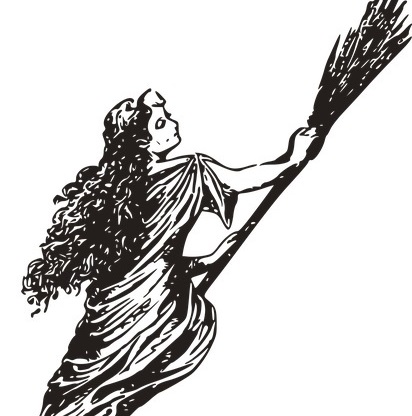
by Richard Subber | Apr 18, 2024 | Book reviews, Books, Human Nature, Joys of reading, Reflections
soul talking…
Book review:
Heart of Darkness
Joseph Conrad (1857-1924)
Edinburgh, Scotland: William Blackwood and Sons, 1902
Recently I re-read Joseph Conrad’s Heart of Darkness. It’s short, quite readable, and sombre, of course.
You may think you know the story because you saw Apocalypse Now. The book is more exploratory. It has more of humanity in it.
The protagonist Marlowe (picture Mickey Rourke in a Panama hat) dives pretty deep into the abyss of human nature…
Give the book a shot if you’re not looking for light reading.
* * * * * *
Book review. Copyright © Richard Carl Subber 2024 All rights reserved.
Book review: Forced Founders
by Woody Holton
The so-called “Founding Fathers”
weren’t the only ones
who helped to shape our independence…
Writing Rainbows: Poems for Grown-Ups with 59 free verse and haiku poems,
and the rest of my poetry books are for sale on Amazon (paperback and Kindle)
and free in Kindle Unlimited, search Amazon for “Richard Carl Subber”
* * * * * *

by Richard Subber | Apr 14, 2024 | American history, Book reviews, Books, Democracy, History, Human Nature, Politics, Power and inequality
the American crisis…
Book review:
Twilight of the Elites: America After Meritocracy
by Christopher Hayes
New York: Crown Publishers, 2012
292 pages
Twilight of the Elites is a frightening assessment of our culture, our government—our civitas.
“We are in the midst of a broad and devastating crisis of authority” (p. 13). You bet we are—and Hayes was writing before Trump was even a speck in your eye.
Americans embrace the American Dream, the Horatio Alger thing, that is, meritocracy: the acceptance and endorsement of the goodness of the idea that we should help ourselves to prosper and be successful, and that those among us with the greatest talent and strength and ambition should enjoy greater prosperity and greater success. It is an article of faith among most Americans that the cream will rise to the top, and deservedly so. Honest hard work will and should be rewarded. One of Hayes’ definitions of a benign meritocracy is “the aristocracy of talent.”
An obvious characteristic of meritocracy, of course, is inequality. “It is precisely our collective embrace of inequality that has produced a cohort of socially distant, blinkered, and self-dealing elites. It is those same elites who have been responsible for the cascade of institutional failure that has produced the crisis of authority through which we are now living…the consistent theme that unites [these failures] is elite malfeasance and elite corruption” (pp. 22-23). This acceptance of the meritocracy mythology “allows everyone to imagine the possibility of deliverance [from unfavorable circumstances], to readily conjure the image of a lavish and wildly successful future” (p. 47).
Hayes points out, however, that “a deep recognition of the slow death of the meritocratic dream underlies the decline of trust in public institutions and the crisis of authority in which we are now mired. Since people cannot bring themselves to disbelieve in the central premise of the American dream, they focus their ire and skepticism instead on the broken institutions it has formed” (p. 63). There is ample attention to the dreadful failure of the media, among other institutions, to sustain our communal understanding and respect for facts and the truth.
A suggestion about one possible agent of positive change identifies a “radicalized upper middle class” that bridges the liberal-conservative division, and forces accountability on our institutions of government, justice, education and finance. Hayes imagines “a crisis…necessary upheaval and social transformation,” and acknowledges the obvious: those with power never want to give it up.
Twilight reminds us that the ultra-wealthy, ultra-powerful 1% will hang on to what they’ve got—and keep trying to get more—until their reality changes.
Hayes tells many truths about the devastation that wracks American culture and most Americans, because the myth of the American dream is enabling a tiny elite to amass wealth and power, and use both to corrupt our society.
Americans must accept the frightening hardships
of a sincere commitment to change things.
Let’s get started.
* * * * * *
Book review. Copyright © Richard Carl Subber 2024 All rights reserved.
Book review: Tales from Shakespeare
summaries by Charles and Mary Lamb…
Writing Rainbows: Poems for Grown-Ups with 59 free verse and haiku poems,
and the rest of my poetry books are for sale on Amazon (paperback and Kindle)
and free in Kindle Unlimited, search Amazon for “Richard Carl Subber”
* * * * * *

by Richard Subber | Apr 9, 2024 | Joys of reading, Language, My poetry, Poetry
the soprano’s tear-stained kyrie
Symphony
A new book
somehow sings a siren’s song,
a symphony of words
that make a new tune,
such delight to open any page,
and hear the mezzo’s lilt,
the soprano’s tear-stained kyrie,
and nod as the basso
closes a chapter
with words worth repeating,
and let the chorus turn you
to another page,
for more words
that suddenly are not strangers,
such old words
that make a new song.
May 30, 2023
* * * * * *
My poetry. Copyright © Richard Carl Subber 2024 All rights reserved.
“Boil up” and other good manners…
The “Hobo Ethical Code” is worth a quick read.
–
In other words: Poems for your eyes and ears with 64 free verse and haiku poems,
and the rest of my poetry books are for sale on Amazon (paperback and Kindle)
and free in Kindle Unlimited, search Amazon for “Richard Carl Subber”
Your comments are welcome—tell me what you’re thinking.
* * * * * *

by Richard Subber | Apr 6, 2024 | American history, Book reviews, Books, History, Politics, Revolutionary War
the Adams-Jefferson “friendship”
Book review:
Friends Divided: John Adams and Thomas Jefferson
by Gordon S. Wood (b. 1933)
New York: Penguin Press, 2017
502 pages, extensive index and notes
Gordon Wood is a rightly acclaimed historian and author. Friends Divided is not his best work.
Wood has enviably thorough knowledge of the history of the American revolution, and his oeuvre is fascinating and compelling.
It seems to me that Wood has invested too much of idealized historical circumstances into the thinking of Adams and Jefferson, and the torrent of writing that they produced.
They were influential human beings and leaders in their society. I don’t buy the so-called “great man” concept of historiography. I don’t think Wood endorses it, but it seems that he has pasted the towering personalities of Adams and Jefferson into and onto his remarkably comprehensive understanding of the Enlightenment, American revolutionary politics, and the social/commercial evolution of America before and after the divorce from Britain.
Adams and Jefferson had a celebrated (then and now) on-and-off friendship during most of their adult lives.
Friends Divided is not what the American Revolution is all about, despite Gordon Wood’s rapturous concatenation of the “friends” and the world they lived in.
* * * * * *
Book review. Copyright © Richard Carl Subber 2024 All rights reserved.
In other words: Poems for your eyes and ears with 64 free verse and haiku poems,
and the rest of my poetry books are for sale on Amazon (paperback and Kindle)
and free in Kindle Unlimited, search Amazon for “Richard Carl Subber”
* * * * * *

by Richard Subber | Mar 21, 2024 | American history, Book reviews, Books, History, World history
lots of personal drama
Book review:
Battle of Wits:
The Complete Story of Codebreaking
in World War II
by Stephen Budiansky (b.1957)
New York: The Free Press, 2000
436 pages with index, detailed notes
It is somewhat disappointing to me that Budianky’s well-researched work is focused on American and British codebreaking work during WWII, with relatively little said about the opposing code work of the Axis powers.
Nevertheless, Battle of Wits is a personalized and engaging account of the people involved in codebreaking that began, with baby steps, in the years following WWI.
It’s a lot to read, the personalities are dramatically presented, and there is a fair amount of technical stuff, so the book can satisfy both casual readers and the techies.
If you think you know a lot about Enigma and the Japanese code work and all of the half-truths about codebreaking in the second great war, read this book and learn some more.
* * * * * *
Book review. Copyright © Richard Carl Subber 2024 All rights reserved.
Book review:
The American Revolution: A History
The “Founders” were afraid
of “democracy”…
by Gordon S. Wood
My first name was rain: A dreamery of poems with 53 free verse and haiku poems,
and the rest of my poetry books are for sale on Amazon (paperback and Kindle)
and free in Kindle Unlimited, search Amazon for “Richard Carl Subber”
* * * * * *

by Richard Subber | Mar 17, 2024 | American history, Book reviews, Books, History, Human Nature
very destructive bogus stuff going on…
Book review:
The Witches:
Suspicion, Betrayal, and Hysteria in 1692 Salem
by Stacy Schiff (b.1961)
Little, Brown and Company, New York, 2015
498 pages
It may be that Stacy Schiff has neglected to include some fact or sentiment about the Salem witch trials, but I can’t imagine what it might be. The Witches is an expansive compendium of the whos and whats and whys and wherefores of this compelling—yet essentially impenetrable—story about a community gone crazy.
Maybe you had to be there to understand it.
It’s too easy to suggest the McCarthy Communism hunting in 1954 as a modern analogy, but it won’t work. The whole dreadful McCarthy thing was a political football, approaching a sideshow even though it attracted the nominal attention of the nation and destroyed many lives.
The Salem witch trials (and the witch hunting that went on in neighboring towns) consumed the waking hours of all the townsfolk, who were deeply convinced that witches exist and that they are in league with satanic forces.
For my taste, Schiff tells too much of the story. I would have been content with a less detailed account. There is repetition that is dispensable.
For my taste, she struck a good balance between telling the story as it happened, and inviting the reader to suspect that the teenage girls were fooling all along, and that too many accusers had a personal reason to “get” the accused, and that too many religious and civic leaders struggled unsuccessfully with their religious faith and the opposing impulses of their arguably decent selves who quickly figured out that the witch craze was a very nasty game.
You don’t need to read the whole book to figure out that there was some very destructive bogus stuff going on in the Massachusetts Bay Colony in 1692.
Maybe you don’t need to read the whole book to be convinced that some folks aren’t continuously motivated by a decent streak of good will and a desire to support communal well-being.
* * * * * *
Book review. Copyright © Richard Carl Subber 2024 All rights reserved.
Book review: An Empire on the Edge
by Nick Bunker
The British wanted to win
the Revolutionary War,
but they had good reasons
for not trying too hard…
My first name was rain: A dreamery of poems with 53 free verse and haiku poems,
and the rest of my poetry books are for sale on Amazon (paperback and Kindle)
and free in Kindle Unlimited, search Amazon for “Richard Carl Subber”
* * * * * *





